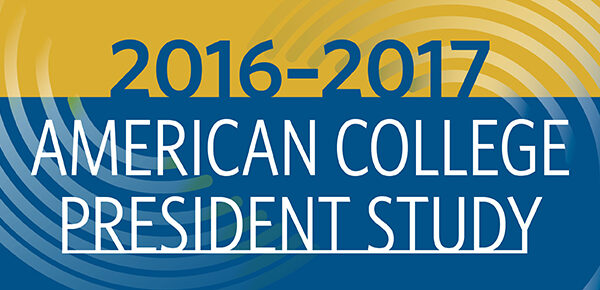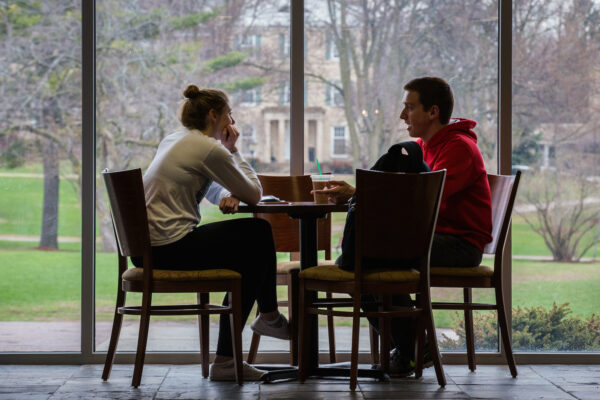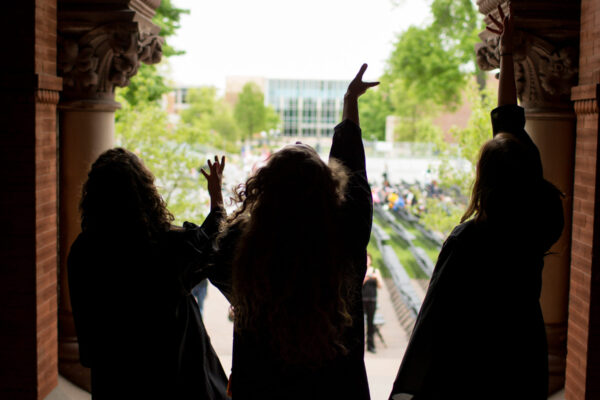Harvey Mudd College President Maria Klawe on the Importance of Asking for Help
In a deeply personal and moving speech, Harvey Mudd College (CA) President Maria Klawe began Saturday evening’s ACE Women’s Leadership Dinner by asking the audience a simple question: “When was the last time you asked for help?”

Throughout her career as a scholar and computer scientist, Klawe has discovered that women are less likely to ask for help, whether out of pride, shyness or simply being afraid.
So Klawe asked the crowd to imagine a world where women are not only empowered to ask for help, but are also equally empowered to give it.
Klawe said she discovered the importance of asking for help after a series of personal and professional hardships during which she was too afraid or unwilling to do so herself. She cited a debilitating bicycle accident which led to a deep depression; adapting to the cultural change of a new institution; and feeling stuck with the lack of women computer science majors on her campus and in the field in general and not having the means to change it.
Klawe realized that her fear of asking for help for both herself and others had prevented her from taking charge of her own life and potentially transforming the lives of her students. Asking for help is hard, she noted, without the right foundation for it.
It was through this lens that Klawe described how overcame her own challenges and now feels empowered to make an impact and create the most supportive community possible. While she openly admitted that Mudd’s curriculum is “insane,” she said this is a purposeful step to ensure collaboration. For example, she has created a program where upperclassmen who once struggled academically serve as peer liaisons to students currently struggling, setting up an effective partnership with a level playing field. (See how Klawe has increased CS majors on her campus here).
Despite a short disruption from a fire alarm halfway through her speech, the indefatigable Klawe soldiered on, informing the crowd “all of you that came back are the ones that should have been here, I believe firmly that.”
Klawe ended her speech with three important pieces of advice for the audience. First, never forget that there is hope; you can improve. Second, a supportive learning environment is key—with confidence in community, women will thrive. And finally, we must demystify the path to success and show the women leaders of tomorrow that their goals and hopes and dreams, whatever they may be, are attainable.
Klawe was joined by Talithia Williams, the first African American to receive tenure at Mudd, a member of the mathematics faculty, and a current ACE Fellow. Williams is completing her fellowship year at University of Maryland, Baltimore County with president Freeman Hbrawoski (and a former COF/Fidelity Investments Mentor Award Winner), someone that Klawe noted was a personal hero of hers.
Also at the dinner, ACE President Molly Corbett Broad and Kim Bobby, director of ACE’s Inclusive Excellence Group, presented the 2016 Donna Shavlik Award to Lucie Lapovsky, a longtime advocate for achieving gender equity in higher education leadership.

Lapovsky said she was honored to be the recipient of the Shavlik award, named in honor of her friend and mentor Donna Shavlik, the former director of ACE’s Office of Women in Higher Education (now part of the Inclusive Excellence Group).
Lapovsky said Shavlik has been an exceptional and powerful mentor, often imploring her to see things in in grey when [she] sees them in black and white. In fact, through her former role as the chair of the executive board of the ACE Women’s Network, Lapovsky presented Shavlik with the first award named in her honor some 15 years ago.
As the crowd departed for the second time that evening, they were left with Klawe’s final remarks. She said, “I am who I am, but it is important to remember that you must communicate in a way that others can hear,” reminding us all to remember just how powerful help and collaboration can be.
If you have any questions or comments about this blog post, please contact us.


